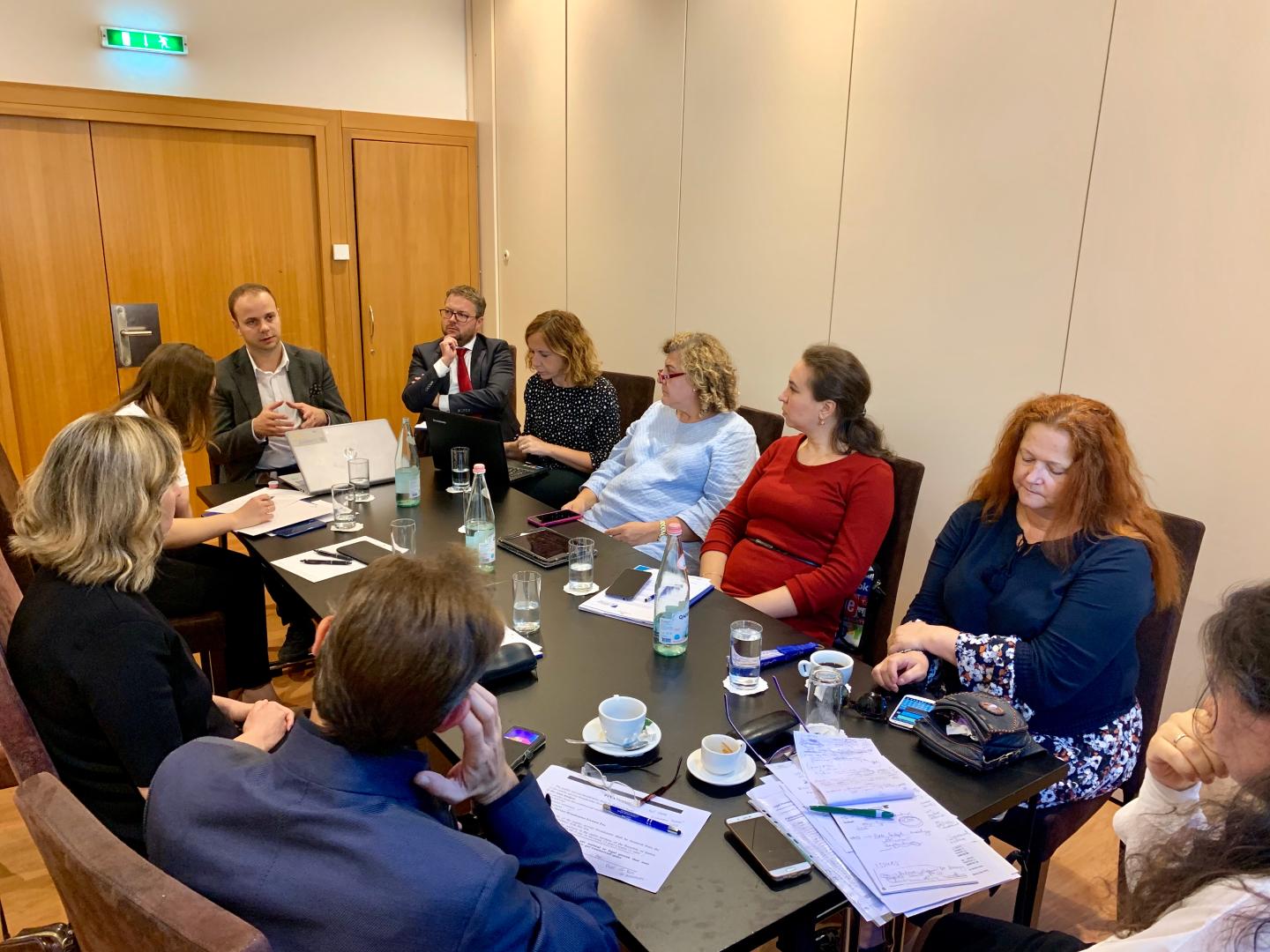New perspectives for public service broadcasting on the Balkans - Media Programme Southeast Europe
At the invitation of the KAS Media Programme South East Europe, the Article-10-EMRK working group of media experts (named after the European Convention on Human Rights) discussed about the legal and financial framework of public service broadcasters in the region. The workshop took place on October 8th in Tirana. In their presentations the participants from Albania, Bosnia-Herzegovina, Bulgaria, Croatia, Kosovo, Moldova, North Macedonia, Romania, Serbia and Hungary covered the current situation in the respective countries. They provided an overview of the legal basis of public service media and their financing.
Hendrik Sittig, Head of the KAS Media Programme South East Europe, emphasised at the opening of the expert workshop that the public service media is one of the most important components of democracy. Journalists must be able to work independently and without political or economic influence. The protests in Bulgaria and Serbia in the last months showed once again how precarious the situation for public service media in South East Europe is. Only independent and well-financed public service broadcasters can fulfill their mission in democracy successfully: information, education and entertainment.
Prof. Dr. Johannes Weberling, Head of the Department of Media Law at the Viadrina European University in Frankfurt (Oder), also welcomed the experts. In the most of the West European countries, public service media are a mirror of the society and the supervisory boards represent the citizens, he said. That is less the case in South East Europe.
Dr. Brikena Kasmi, lawyer and lecturer at the University of Tirana, described the situation of the public service media in Albania. She concluded her report with the following words: “I tried to find issues in our legal framework but there are not so many. The main problem is in the election and functioning of the supervisory board, the civil society does not actively take part. According to the law the citizens can propose members, but in the end parties are those who choose.”
Ljiljana Zurovac, director of the press council Bosnia-Herzegovina, described the complex situation in her country. The public service media is divided into three institutions – similar to the complicated structure of the country. The respective board members should represent the people, but in reality the candidates would be elected according to their political background. “Public services are not in the service of the public, but of certain parties”, she summarised the difficult situation.
The experts from Bulgaria Emil Georgiev and Dr. Denitza Toptchiyska explained the current situation in their country and the background of the protest in September against the management of the Bulgarian National Radio (BNR) – see also the detailed report of the KAS Media Programme. Their conclusion was as follows: “Bulgaria may have an adequate legal basis to maintain media independence, but the country lacks the necessary political will to enforce it accordingly.” The reports from the other countries included similar results. In the most cases, there are laws to ensure good functioning public service media, but they often fail to offer precise financing models and explicit compliance with the rules that guarantee independence.
More in the event report here






